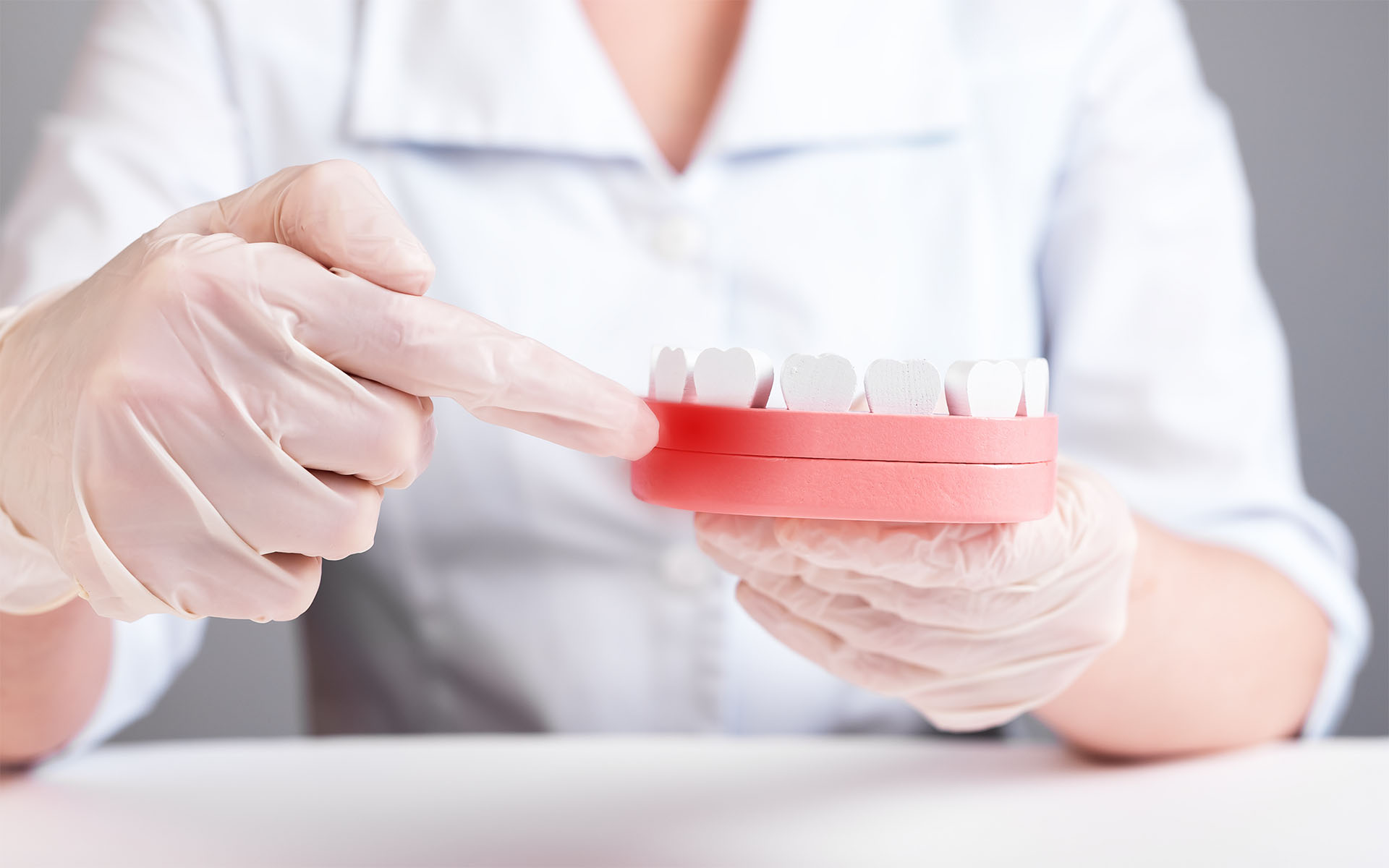
Gingival (Periodontal) Diseases

Swelling or bleeding of your gums when you brush your teeth can be a sign of gum disease. Many adults experience gum problems despite brushing and flossing regularly. That's why visiting your dentist regularly is of great importance in preventing gum disease or other possible diseases.
What is Gum Disease (Periodontal Disease)?
Gum diseases are dental infections that worsen over time if precautions are not taken. It includes two stages as early-stage gum disease (gingivitis) and advanced-stage gum disease (periodontitis). Early-stage gingival diseases present as swollen and bleeding gums. In some cases, there may be no symptoms. The disease can be reversed if the inflammation is intervened in a timely manner. In the case of advanced gum disease, that is, periodontitis, it occurs when the inner layer of the gums pulls away from the teeth and forms pockets. Periodontitis is defined by the loss of the bone that supports the teeth.
Why Do Gum Diseases Occur?
Bacteria in your mouth produce toxins that can irritate gum tissue. If the bacteria is not removed by brushing your teeth, it creates a hard-to-remove film (plaque). Over time, plaque hardens and forms a substance called tartar, which requires professional cleaning to get rid of. If the necessary cleaning is not done, periodontal disease occurs over time.
Some habits and lifestyles increase the risk of gum disease. You are more likely to encounter gum diseases in cases such as the following;
- Tobacco use
- Having diseases that impair the immune system, such as diabetes, arthritis, heart disease, or HIV and AIDS
- Not having a correct oral and dental care routine
- Permanent dental appliances such as crooked teeth, loose fillings, or poorly fitting bridges
- Presence of a close family member with a history of gum disease or early tooth loss
- not visiting the dentist regularly
How Do Gum Infections Affect Your General Health?
Gum infections can cause uncomfortable symptoms in their early stages.
Advanced periodontitis can cause you to lose your teeth, making it difficult to eat. Bacteria from periodontitis can also increase your risk of health problems, including:
- Diabetes
- Heart diseases
- Lung diseases
- Stroke
- Arthritis
What are the Symptoms of Gum Infection?
If your gums are swollen or bleed easily, it may be due to gingivitis. In addition, the symptoms of gum infection are as follows;
- Bad breath that persists even after brushing your teeth
- Toothache and pain while chewing
- loosening of tooth roots
- tooth sensitivity
- Teeth that appear longer than normal due to erosion of the gums.
How to Treat Early Stage and Advanced Stage Gum Disease?
The best treatment for early-stage gingivitis is a professional cleaning. Your dentist detects and removes plaque and tartar, even in hard-to-reach areas. When the plaque and tartar on your teeth are cleaned, your gums will heal on their own and no further treatment is required.
Advanced stage gingivitis, namely periodontitis, is treated by periodontists. Scaling and rooting is a procedure to remove plaque and tartar that has spread to the root of the tooth. For many people with periodontitis, this is the only treatment needed. In some cases, periodontists may need to perform minor procedures to eliminate periodontal disease. They can rebuild the bone surrounding your teeth lost from periodontal disease. Periodontitis treatments may sometimes require the extraction of affected teeth. For such inflammatory tooth loss, there are options such as dental implants that can restore a natural-looking smile. Dental implants are similar to joint replacements as they fuse with your jawbone. The procedure for placing these implants is relatively quick and painless.
How to Prevent Gingivitis and Periodontal Disease?
Steps you can take to prevent gingivitis and eventual periodontal disease include:
- Brushing your teeth with a fluoride-containing toothpaste
- flossing to remove plaque deposits near the gumline
- Using mouthwash to get rid of bacteria that may remain on your teeth after brushing
- Regular dental cleaning and dental examination
quit smoking